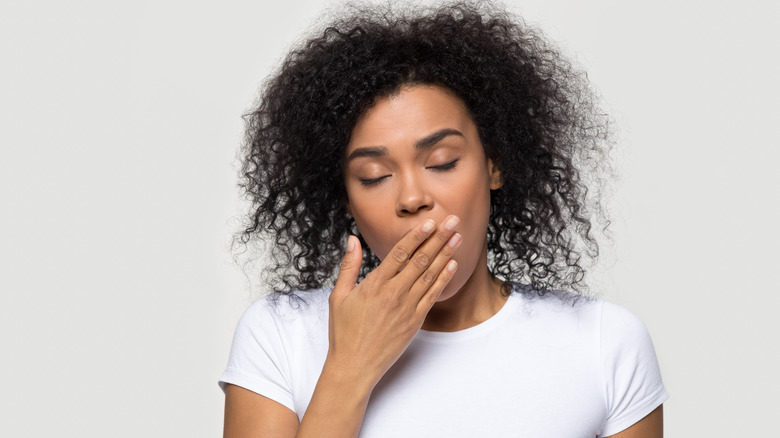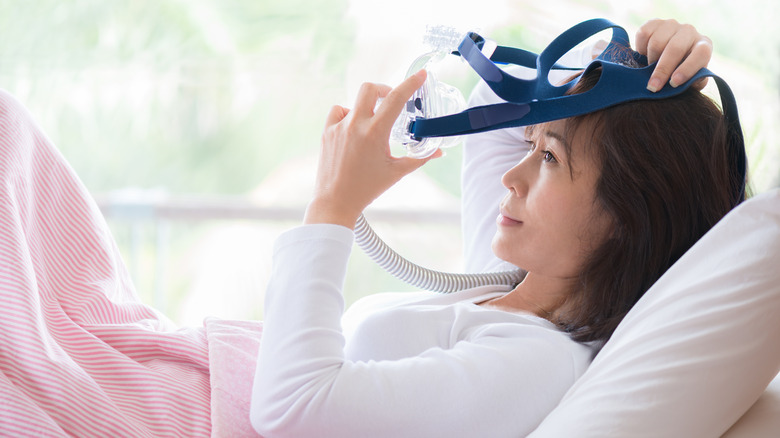What It Really Means When You Have Sleep Apnea
You might have sleep apnea if you consistently feel tired even after a full night of rest, according to the American Academy of Sleep Medicine (AASM). Other symptoms are snoring, trouble concentrating, memory problems, or falling asleep during the day. You might also notice that you wake up several times a night and don't know why, or you wake up choking for air. The Sleep Foundation adds you may also experience headaches; feel irritable; have trouble thinking clearly; have a short attention span, sore throat, or dry mouth; or wake up several times a night to go to the bathroom.
Sleep apnea causes the tissues in your throat to temporarily close or narrow your airway while you're sleeping, causing you to stop breathing many times a night. You may not be aware you're stopping breathing while you're asleep. You could stop breathing for up to a minute at a time, according to the Sleep Foundation.
The lack of oxygen caused by sleep apnea can have detrimental effects on your health. According to AASM, untreated sleep apnea can lead to diabetes, heart disease, stroke, high blood pressure, and depression. According to WebMD, sleep apnea can also make ADHD symptoms worse, cause vehicle accidents, and cause poor academic or work performance.
If you have sleep apnea symptoms, make an appointment with your doctor right away. Your doctor will set you up with a sleep test in a sleep lab or at home to determine if you have sleep apnea.
Sleep apnea treatment
Prepare for your appointment by keeping a sleep journal. Write down when you go to sleep, when you wake up, if you snore, if you take any sleep medications even if they're over the counter, what you're doing before you go to sleep, such as watching television or reading, and how you feel when you wake up. This sleep journal will help you answer a list of questions the doctor will have for you.
Most sleep studies are done at home, but if your doctor thinks you might have an underlying health condition causing sleep apnea, they will send you to a sleep center. You'll need to stay there overnight, and they'll monitor your oxygen levels, airflow, heartbeat, leg movements, eye movements, and brain waves.
If you're diagnosed with sleep apnea, your doctor will have you sleep with a machine that will help you breathe while you're sleeping, most commonly a continuous positive airway pressure (CPAP) machine (via the Cleveland Clinic). In addition, your doctor may recommend losing weight, avoiding alcohol and sedatives, using a wedge pillow or sleeping on your side, or using nasal sprays or breathing strips.
According to the Cleveland Clinic, some people need surgery to help treat sleep apnea, such as removing the tonsils or adenoids or extra tissue in the throat or upper airway, or nasal surgery for a deviated septum. With treatment, you'll start sleeping better and feeling better.


